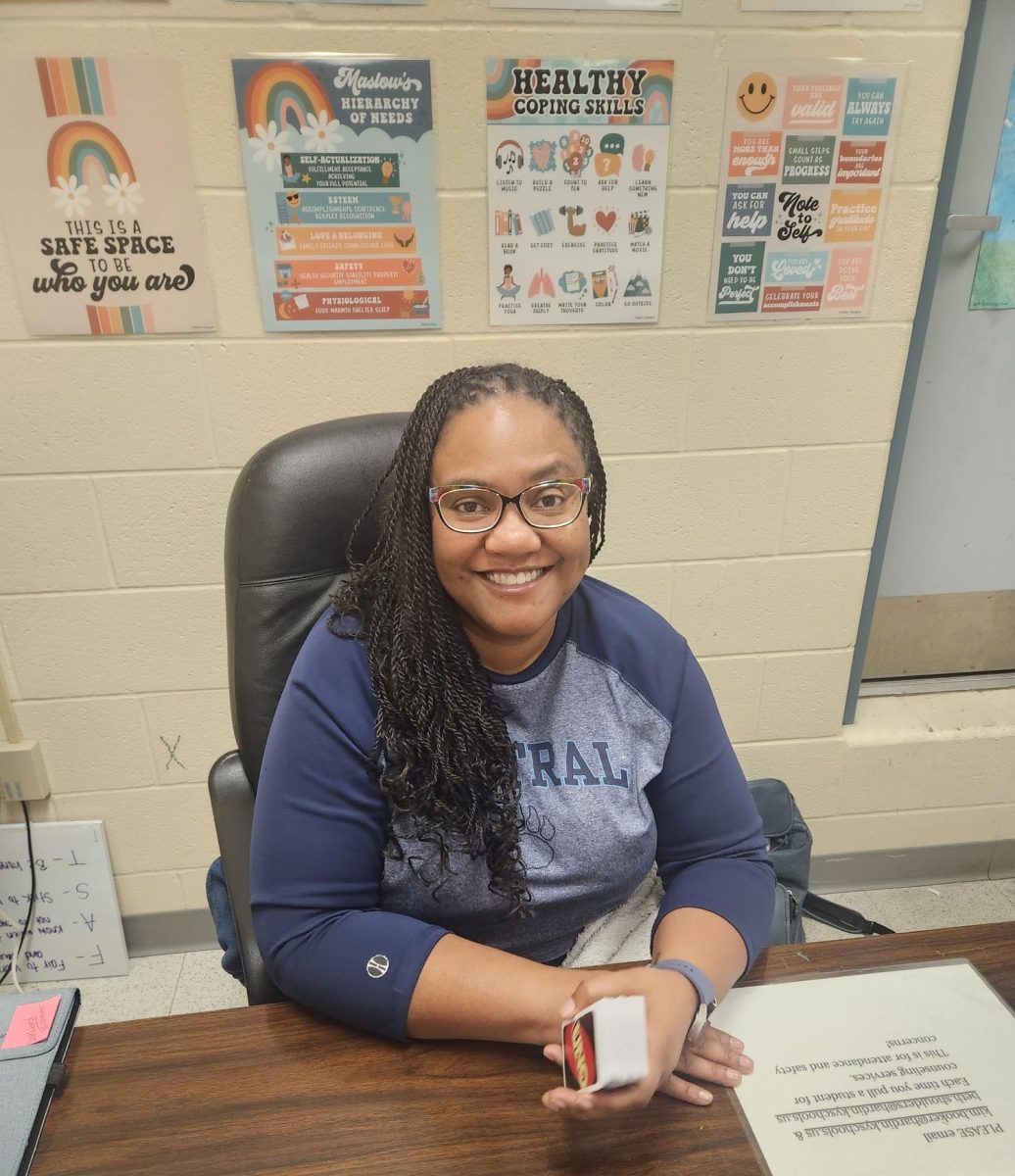A Deep Dive into Self-Love vs. Self-Obsession

August 30, 2022
Self-love. What is it? Why is it important? How does one achieve it? Most importantly, where is the line drawn that separates self-love and self-obsession? As society evolves, shifts, and embodies new attitudes toward beauty and success, the trend of prioritizing personal peace appears to grow exponentially. That being said, the subject of caring for your own being in parallel to a loved one is an uncommon lesson. How are adults, teens, and young children alike, to learn these healthy habits? Furthermore, what makes a habit healthy enough that it qualifies as self-love?
As a junior in high school, I have grown up with elders both in and out of the classroom who advocate and advertise resources to reduce stress, offer assistance, and simply promote happiness. Each tidbit of advice they pass on always seems to dance around the genre of self-love. But never have I been advised on how to avoid self-obsession whilst practicing these techniques. I began to wonder, how many of my peers, or even teachers, think they are practicing self-love, but are actually on the tipping point of, may I say, narcissism?
So, what exactly is the difference between self-love and self-obsession?
“Self-love is just where you are confident and humble about it. You recognize your beauty but don’t bring others down while realizing. I feel like self-obsession is literally where you’re literally engulfed in yourself and make everything about YOU,” junior Jaycee Kurzynow explained. “While you maybe don’t realize it, you probably bring others down while uplifting yourself.”
Such a take on these two concepts was recurrent amongst a large majority of Central Hardin inhibitors. I was pleasantly surprised to find that 79% had been introduced to the ideas of self-love and self-obsession at all. Similarly, it seems that I am not alone in understanding that the line between the two seems to be fading.
“Self-love and self-obsession are not so different. It’s really about how far one takes it. Self-love can be helpful for mental health as well as physical health, but when you begin to put yourself above all else to an unhealthy and toxic extent, it is self-obsession,” sophomore Harper Scott added.
As Scott expressed, one’s focus and heightened awareness of themselves can vary and embody different attitudes when around others. I, amongst my peers, often find it difficult to determine the happy-medium and what the most effective methods of practicing self-love are.
Around the world, different cultures, religions, and especially markets have their own favorite techniques they utilize and advertise for improving one’s love for themselves. Confidence is something that so many people of contrasting backgrounds and appearances struggle with in this day and age, and for adolescents and teenagers especially, navigating changes in our emotional and physical body with pride can prove challenging. In fact, according to the Millennium Cohort Study, researchers found that there was a distinct drop in girls’ self-esteem between the ages of 11 and 14. “At 11, 15% said they felt unhappy about their appearance. However, by the time they were 14, 29% said they weren’t happy.”
To better combat these increased emotions and destructive thoughts about ourselves, we can practice self-love. This doesn’t just mean looking yourself in the eye every morning and telling the reflection you see that they are beautiful, although if this works, all the power to you! Actively working to better yourself in ways that aren’t just centered around your body are also effective ways to incorporate healthy self-love.
“I practice self-love by saying positive affirmations, making sure I spend time with myself (ex. a day spent alone doing something I love), learning how to say ‘no’ when I am not comfortable with saying ‘yes’, journaling, etc.,” sophomore Jenaya Adams commented.
I think it is also important to stress that although our younger generations are under the spotlight when addressing topics such as confidence or personal improvement, teachers, parents, and anyone you pass on the street are also having to face similar dilemmas in their lives. Finding peace and acceptance in who you are is no walk in the park, no matter how old you are. In fact, as we high schoolers grow and develop into independent adults, we may find that our self-esteem is lower than ever before! It’s a scary thought, but after hearing from adults who have been in my shoes, I have come to understand that both self-doubt and self-confidence are things that ebb and flow as time progresses.
“I think that achieving self-love is a lifelong process. As much as I preach to my students about giving themselves grace and not getting caught up in trying to be 100% perfect 100% of the time in every single area of their life, I will be the first to admit that I often feel like I am eating myself alive from the inside out from how painfully critical I am of myself,” Spanish instructor Jennifer Pinto shared, “so my best advice would be to make the commitment to continue to work towards being gentle with yourself, even when you have a day when you convince yourself that you are #theworst. The world is not going to stop spinning and you can hit the reset button before falling asleep and trying again tomorrow.”
All this being said, it is vital to know how much self-love is healthy. Too much of a good thing can easily turn bad. In this case, hyper fixating on yourself can potentially lead to self-obsession. When one is solely focused on their standing, appearance, and successes, the result can contradict self-love’s entire intention.
“Self-obsession can be expressed by people in a variety of ways. It can look like someone constantly talking or changing the subject about themselves during any conversation, as well as an individual being narrowly focused on their own wants and needs,” sophomore Mckayala Sanders expressed. “While these people can be quite oblivious of other people, it doesn’t bother them as it should due to the habit/obsession.”
Although self-obsession isn’t as frequently spoken about in comparison to self-love, it is just as important to keep in mind. With social media usage playing key roles in schools and society in general, people continue to make, update, and alter profiles that emanate around themselves. But it isn’t just modern technology that is causing this obsession, altered perspectives and infatuation with one’s self has been around since ancient times.
In Greek mythology, there lies a story of a beautiful young man named Narcissus. He refused to connect with others, turning down romantic advances, and eventually falling deeply in love with his reflection. Entranced with his own reflection in a pool of water, he dies alone, believing that his only care in the world was the man staring back at him.
I ask of you to keep this tale in mind in the midst of your journey towards self-love. If you do find yourself taking it to a level comparable to self-obsession, shift your perspective towards the world around you. Your teachers, loved ones, peers, pets, and parents all deserve to hold your attention in the way your own image does.
To increase healthy levels of self-love, there are many tips you can practice individually. But, as a school and Bruin community, I can’t help but wonder if a day dedicated to education on personal growth and positive attitude would be beneficial.
“With hormones kicking into high gear, students are feeling less confident than ever. Having a day dedicated to self love can help so many people feel comfortable in their own skin again,” senior Ava Robinson contributed.
In contrast, sophomore Harper Warrell argued, “I personally think that the administrators would get laughed at. It’s obvious that high school students are ruthless, so having a day like this would give students a bigger reason to laugh. I mean this in the most respectful way possible.”
So, dear reader, what do you think about a school-wide day dedicated to self-love? And on a broader note, what do you think about self-love vs. self-obsession? I would love to hear your opinions in the comments and ideas of how Central can promote positive thinking in the building. Understanding how to show our mind and body appropriate appreciation isn’t easy, and it’s different for everyone. So please, be patient with both yourself and others as you progress through the highs and lows of high school.
“You yourself, as much as anybody in the entire universe, deserve your love and affection.” —Buddha



























Syra Lundergan • Aug 30, 2022 at 1:29 pm
I love your take on this Hanna!